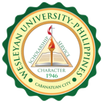 “The competitiveness of our country hinges on the competitiveness of our Higher Education Institutions. Our HEIs are not just centers of learning; they are the engine rooms of our nation’s progress,” DTI-BCD Director Jo-Dann Darong.
“The competitiveness of our country hinges on the competitiveness of our Higher Education Institutions. Our HEIs are not just centers of learning; they are the engine rooms of our nation’s progress,” DTI-BCD Director Jo-Dann Darong.
To systematically assess and improve its processes for better quality education, enhanced global competitiveness, and more efficient institutional operations, Wesleyan University-Philippines (WUP) participated in the Management Association of the Philippines (MAP) CEO Academy Training on the Philippine Quality Award (PQA) for Higher Education Institution (HEI) Presidents with Industry and Government Leaders, organized by the Department of Trade and Industry (DTI), through its Bureau of Competitive Development (BCD), and MAP at the University of the Philippines Bonifacio Global City Campus, Taguig City on October 27 and 28, 2025.
Along with 100 executives from academic and academic-related organizations who joined the program, Dr. John Jason M. Villaroman, Quality Assurance Director, attended the event on behalf of Dr. Irineo G. Alvaro, Jr., WUP President.
The two-day training aimed to strengthen the leadership and management capabilities in the Philippine Higher Education Institutions (PHEIs) through the adoption of the PQA framework.
“Organizational excellence has become an imperative in the delivery of products and services. In education, this means measuring that our graduates, research outputs, and institutional systems meet global standards of quality and competitiveness,” Director Darong emphasized during his presentation of the overview of the PQA.
Chairperson Dr. Shirley Agrupis presented the PQA framework from the Commission on Higher Education (CHED) perspective, highlighting how it aligns with national standards for academic quality and institutional performance. While Dr. Henry K.H. Wang, President of Gate International Ltd., also shared insights on the global perspective of the PQA.
MAP, DTI, and the Philippine Quality Award Foundation (PQAF) aimed to help educational leaders address challenges arising from systemic gaps in education quality and outcomes, as identified in the EDCOM II report, through the integration of the PQA’s performance excellence framework.
Dr. Villaroman shared that Mr. Alfredo E. Pascual, former DTI Secretary, UP President, and MAP President, discussed the relevance of the UP system in maintaining higher academic standards and quality assurance that shed light on the PQA framework (Input, Process, Output, and Outcomes).
He further mentioned the seven criteria that included leadership, strategy, customers, measurement, analysis and knowledge management, workforce, operations, and results that could provide relevant outcomes for academic institutions in line with the demands of global trends today.
“WUP’s pursuit of the PQA is a testament to its commitment to maintaining institutional quality and excellence and its Autonomous Status,” Dr. Villaroman concluded.
Article by Ayumi San Cai Valerio (PIO)
Information provided by John Jason Villaroman

